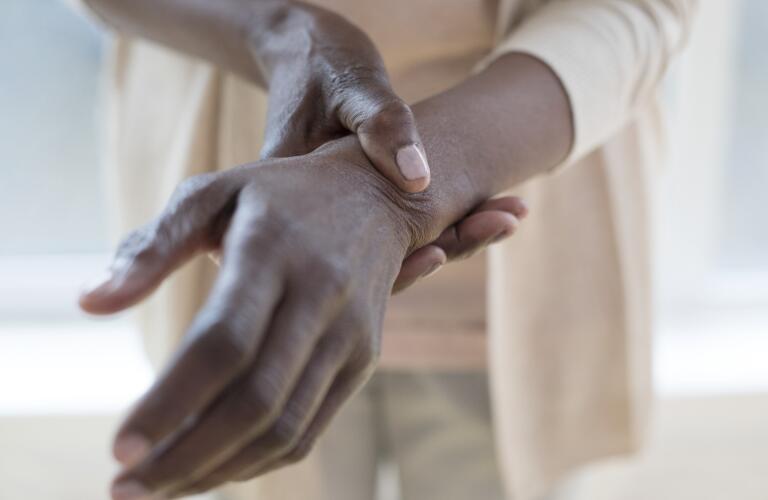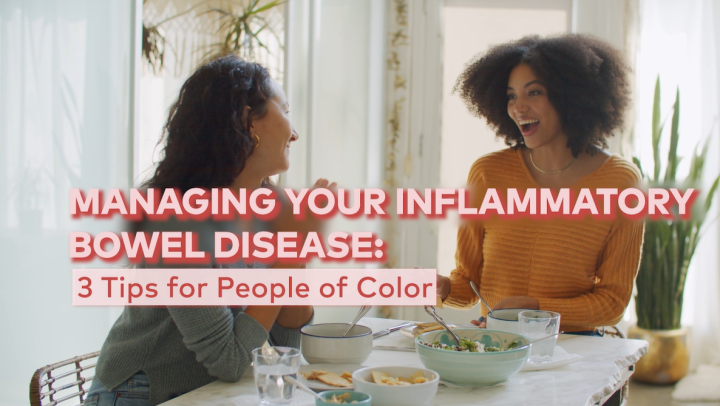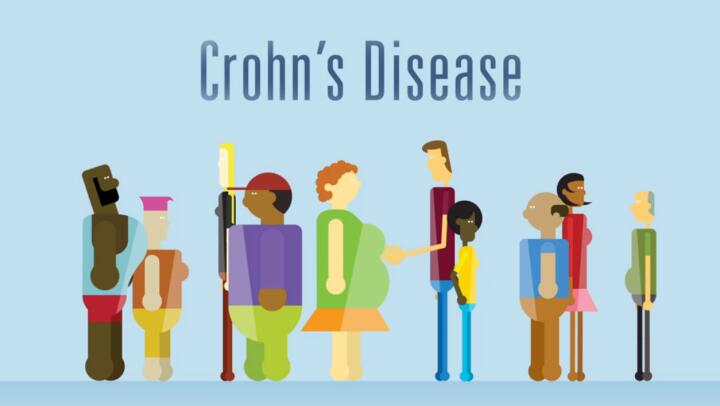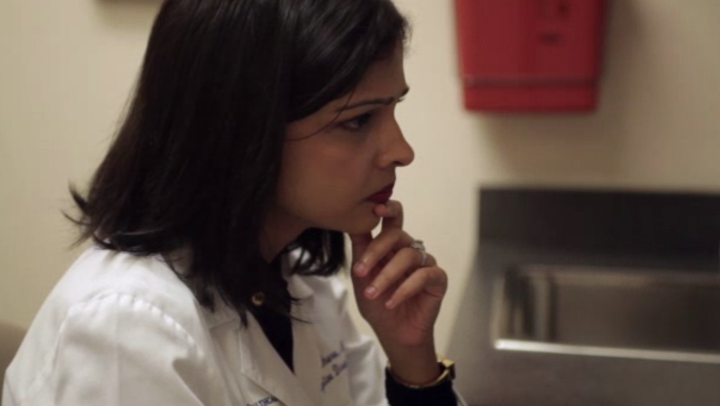
If you have ulcerative colitis (UC), you're probably focused on reducing the gastrointestinal upset and pain that comes with the disease. But there may be other disease-related health issues that need your attention as well. Although not as obvious, UC can cause certain complications outside the colon. Learn more about four potential risks and how you can better manage and prevent them.
1. Osteoporosis
Osteoporosis is a condition in which the bones become weaker, increasing the risk of bone fracture. People with UC are at higher risk for osteoporosis because some medications taken for the disease, such as prednisone and cortisone, can interfere with maintaining healthy bones. The longer these therapies are used to treat UC, the greater the bone loss.
To protect yourself from osteoporosis, experts recommend eating a diet rich in calcium and vitamin D. Good sources include low-fat dairy products, leafy green vegetables, and calcium-fortified orange juice. Getting regular exercise, such as walking or jogging, and not smoking can also protect your bones.
2. Arthritis
Joint soreness is one of the most common complications of UC. Arthritis is thought to affect up to 30 percent of people of all ages with UC. This inflammation in the joints seems to stem from inflammation in the colon. Arthritis can cause swollen, achy, and painful joints. It can also reduce flexibility.
Typically, arthritis pain is related to the severity of gastrointestinal problems. During a flare-up of UC, arthritis pain will act up, too. And when your condition is controlled, arthritis symptoms usually improve. As a result, the best way to prevent arthritis pain is to keep your UC under control. Continue to work closely with your doctor to find a treatment plan that's right for you. Remember, any medication that controls intestinal inflammation can help arthritis as well.
3. Blood Clots
Studies show that people with UC have twice the number of deep vein thromboses (DVT) as does the general population. That's because the inflammation caused by UC has a complex impact on the clotting mechanisms of the blood in the body. DVT is a blood clot in a deep vein, usually in the leg. This is dangerous because the blood clot can break off and travel to the lungs, which can be life threatening.
Unfortunately, it can be difficult to know if you have DVT. Only half of people with the condition have symptoms, which may include swelling, pain, and redness in the problem area. To help prevent the condition, get plenty of exercise, maintain a healthy weight, avoid sitting for long periods of time, and consider wearing compression stockings. Your doctor can test you to find out if you have DVT.
4. Anemia
Anemia occurs when your blood's red blood cell count is lower than normal. It can also occur if your blood doesn't have enough iron-rich protein called hemoglobin. Hemoglobin helps the cells carry oxygen from the lungs to the rest of the body.
People with UC are at higher risk for anemia because of blood loss through the stool. As a result, they feel tired and weak because of a lack of oxygen in the body.
The best way for people with UC to prevent anemia is to keep their colitis under control. In addition, take steps to raise your iron levels. Ask your doctor if you should take iron, vitamin B12, or folic acid supplements, and ask about diet changes that can boost iron levels. Red meat, chicken, turkey, pork, and fish are all good sources. Vegetarian sources of iron include spinach, tofu, beans, dried fruits, and iron-fortified cereals and breads.
Always tell your doctor of any symptoms you are experiencing. By taking steps to minimize the effects of UC, you have the ability to feel better and improve your quality of life.
Key Takeaways
- People with ulcerative colitis are at higher risk for osteoporosis because some medications taken for the disease can interfere with maintaining healthy bones.
- Up to 30% of people with UC also have arthritis, which seems to stem from inflammation in the colon.
- People with UC have twice the number of deep vein thromboses as does the general population.
- You may have a higher risk for anemia because of blood loss through the stool.
























